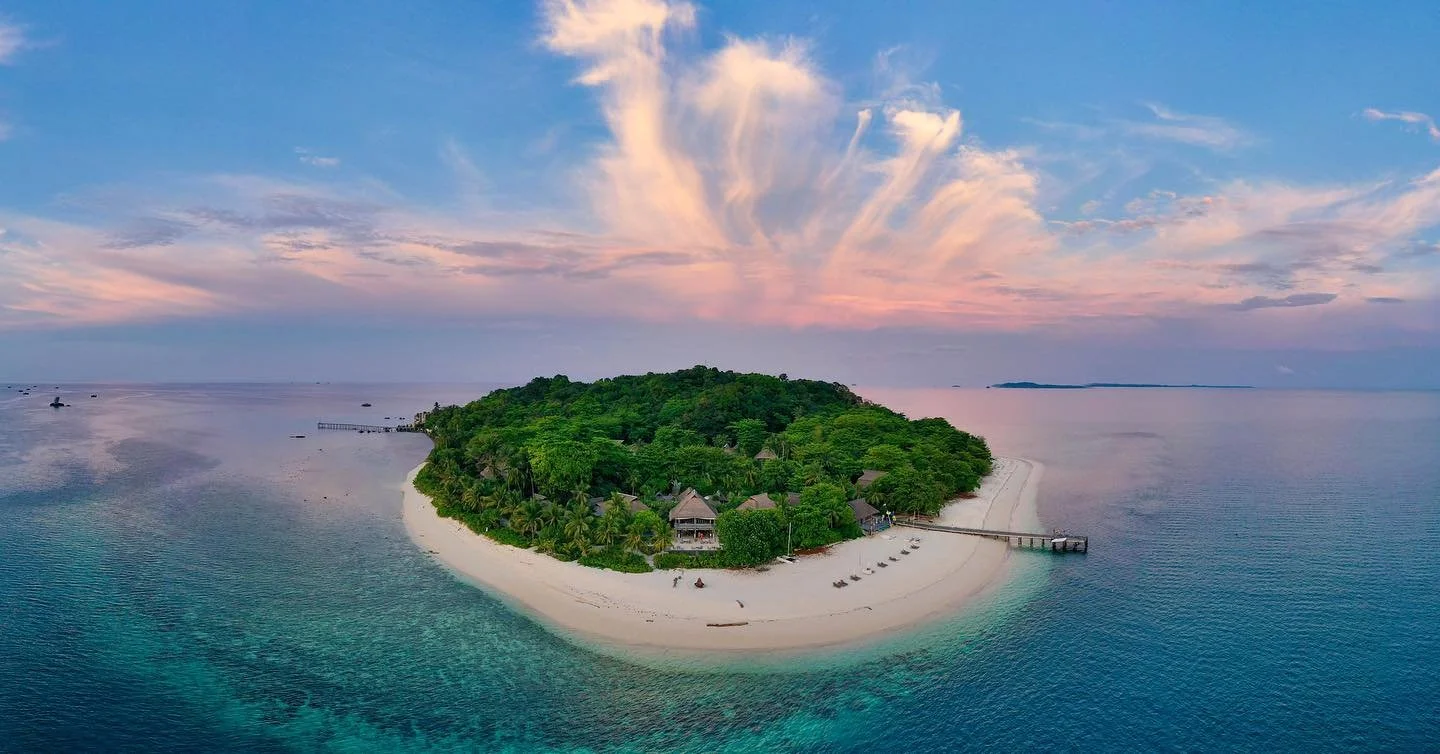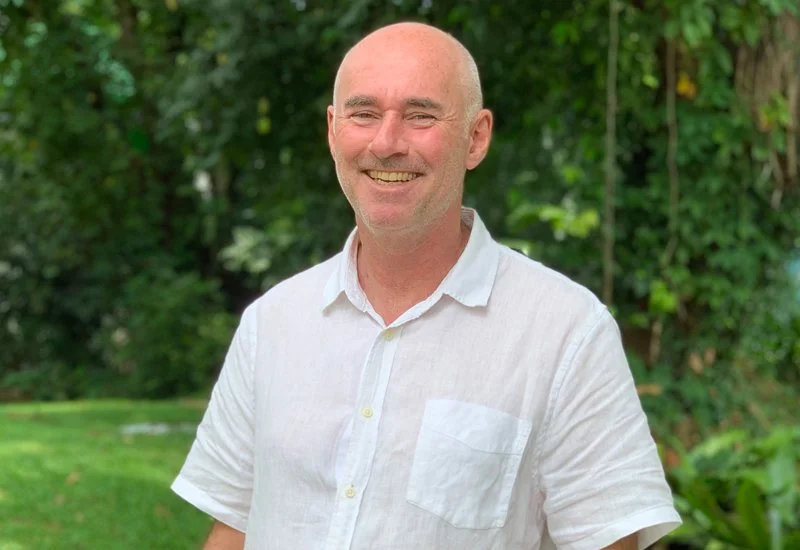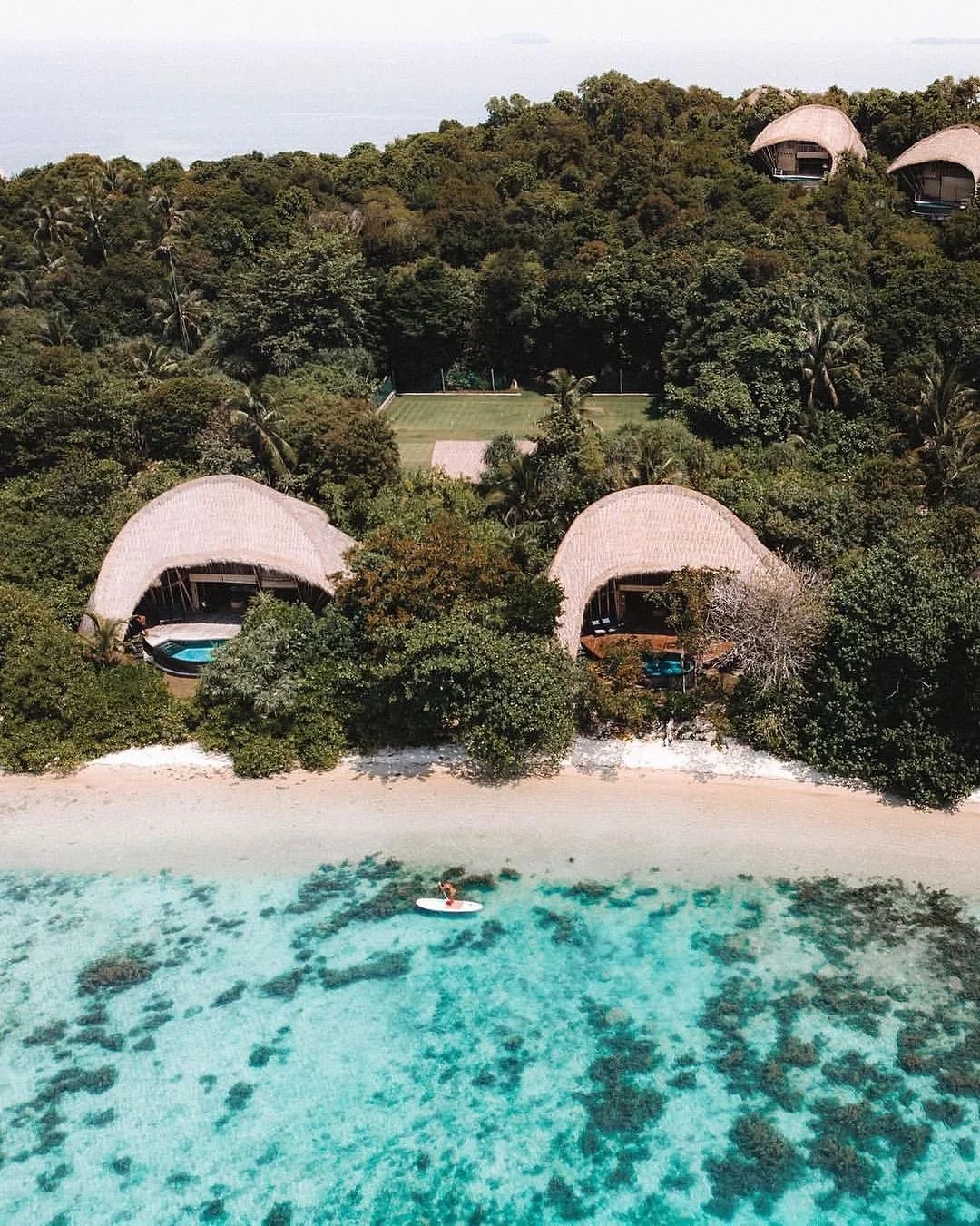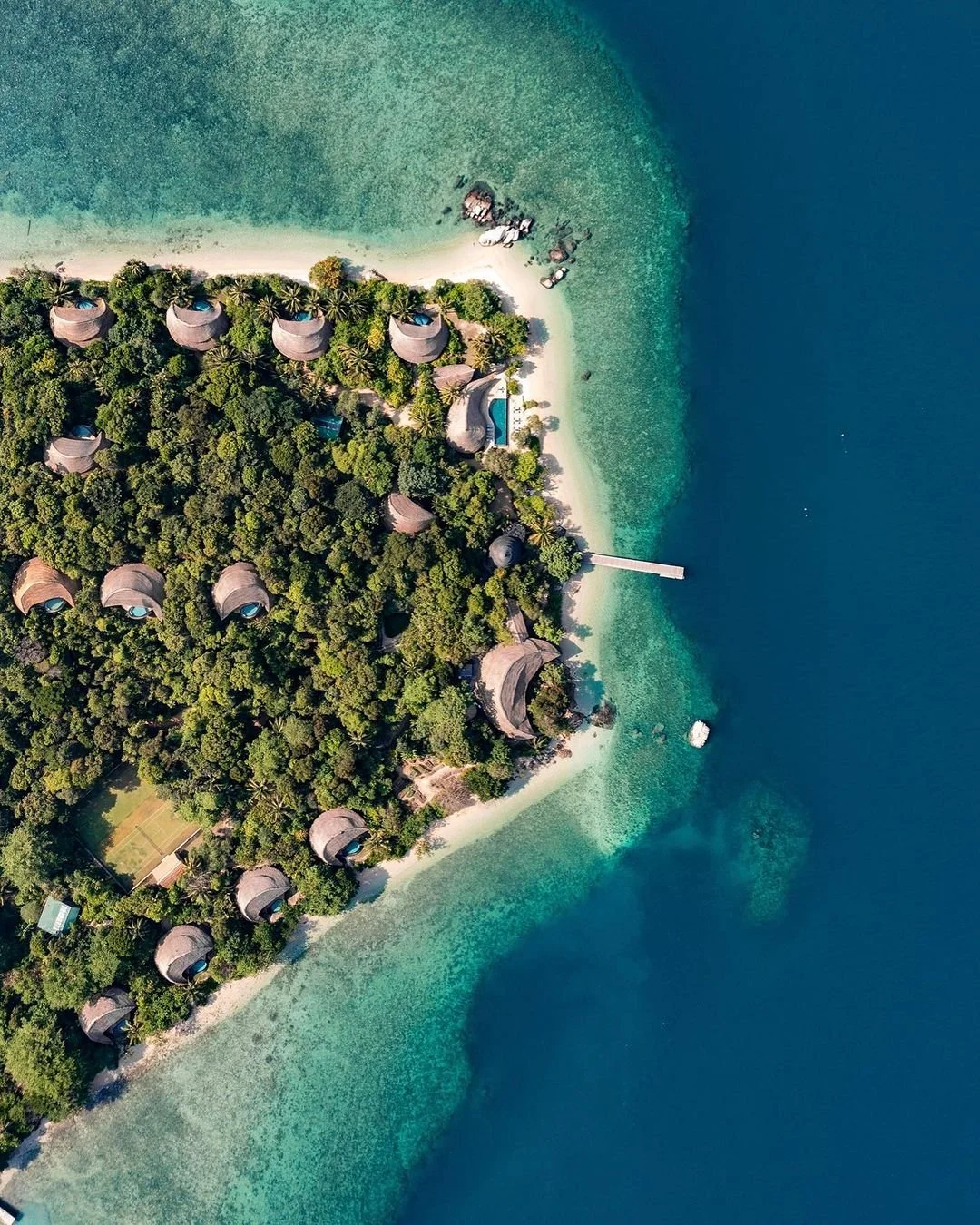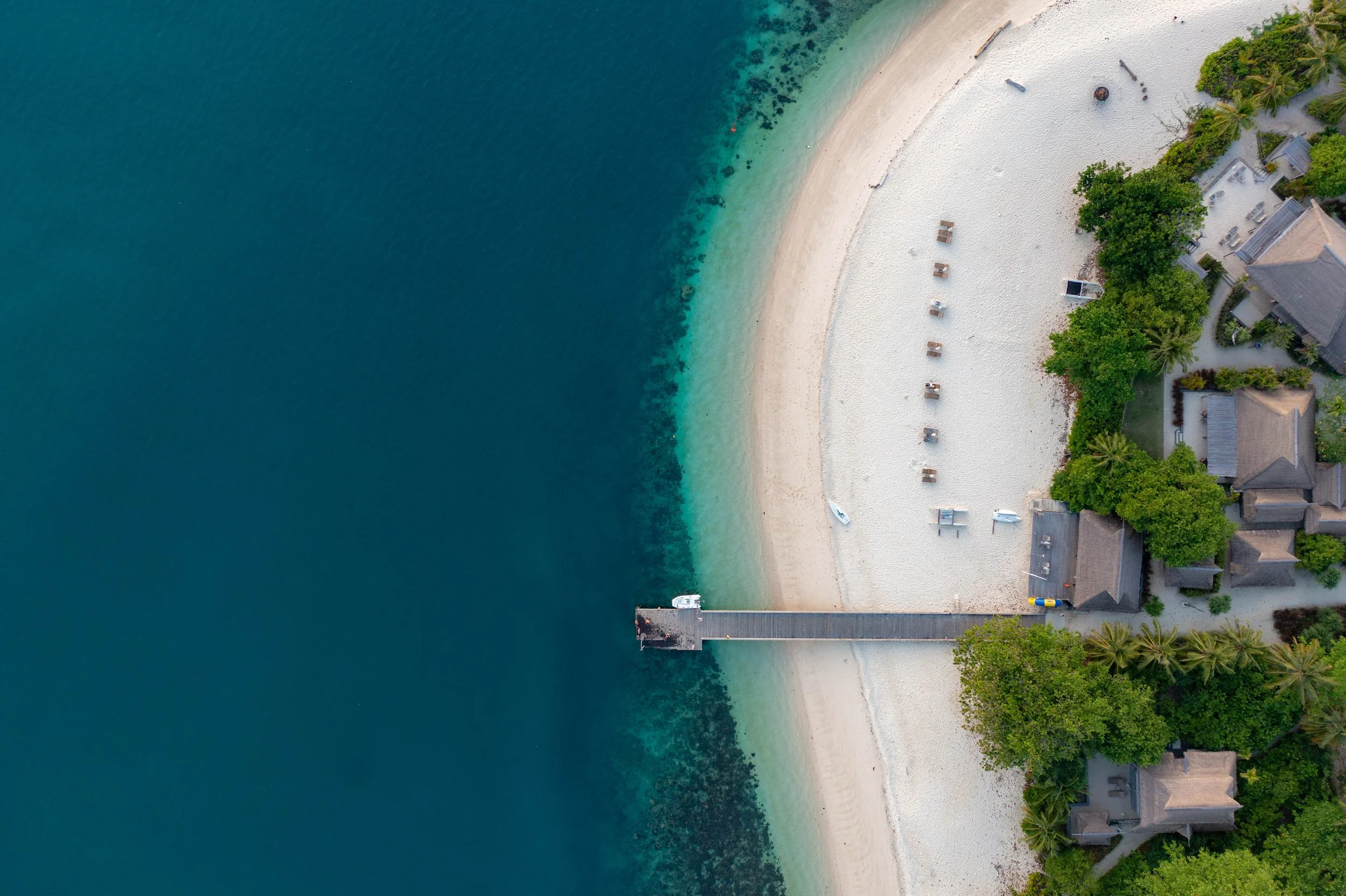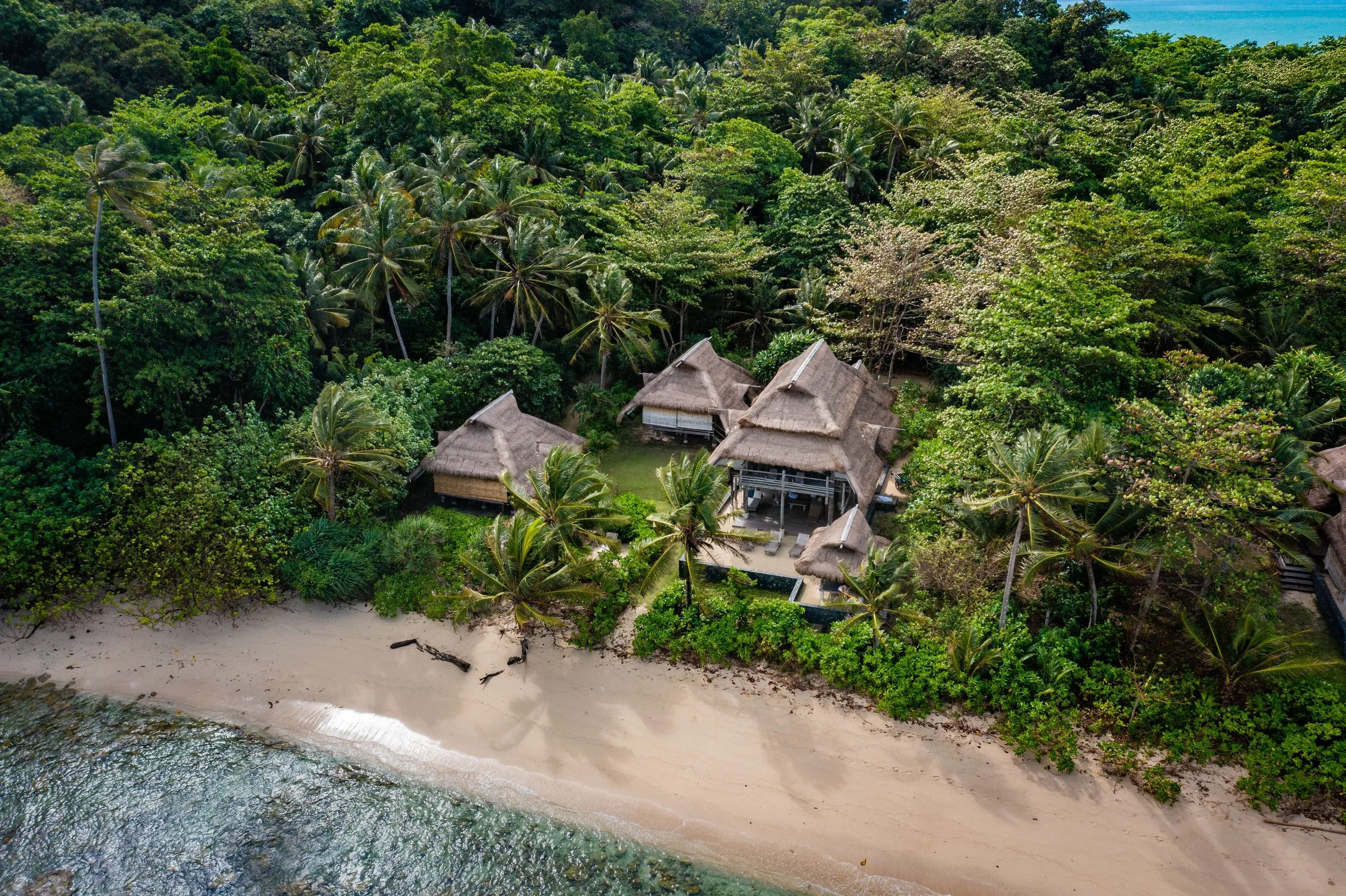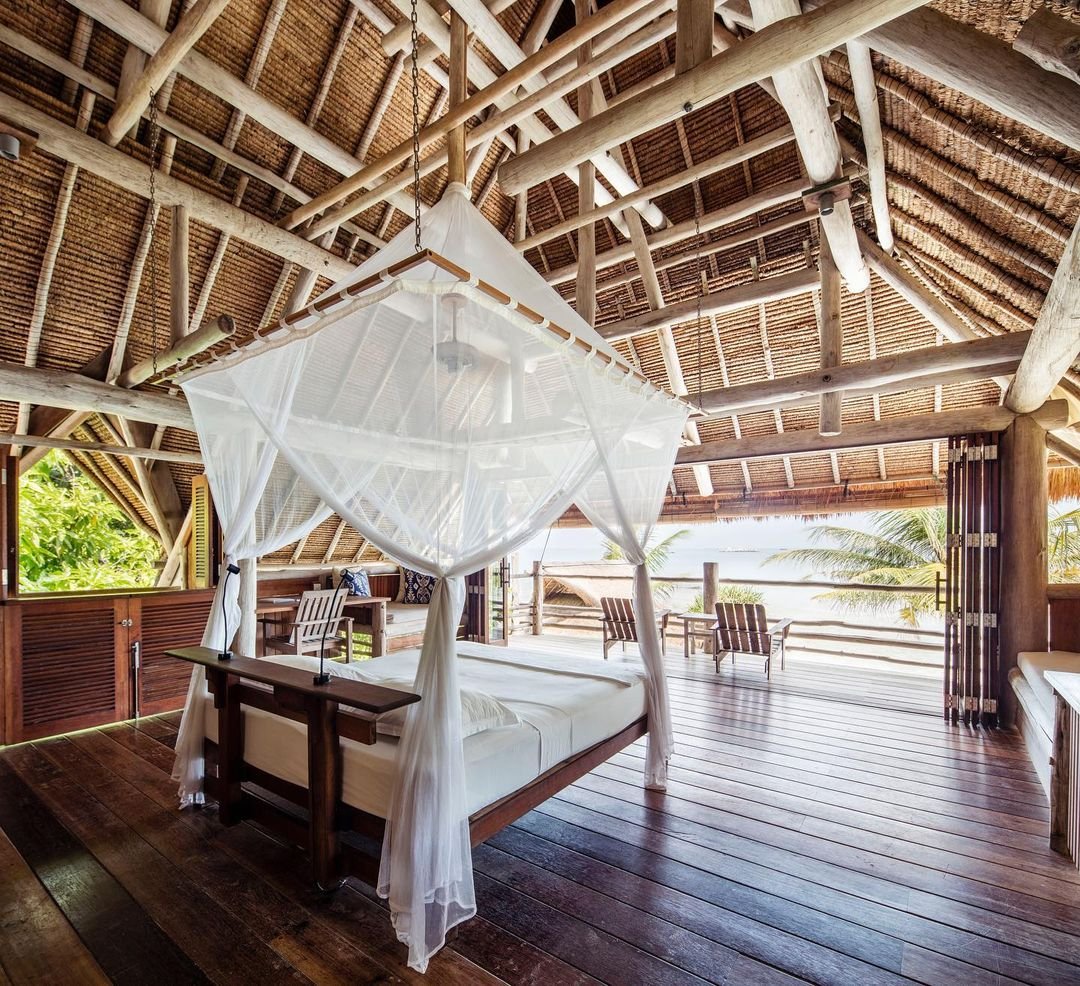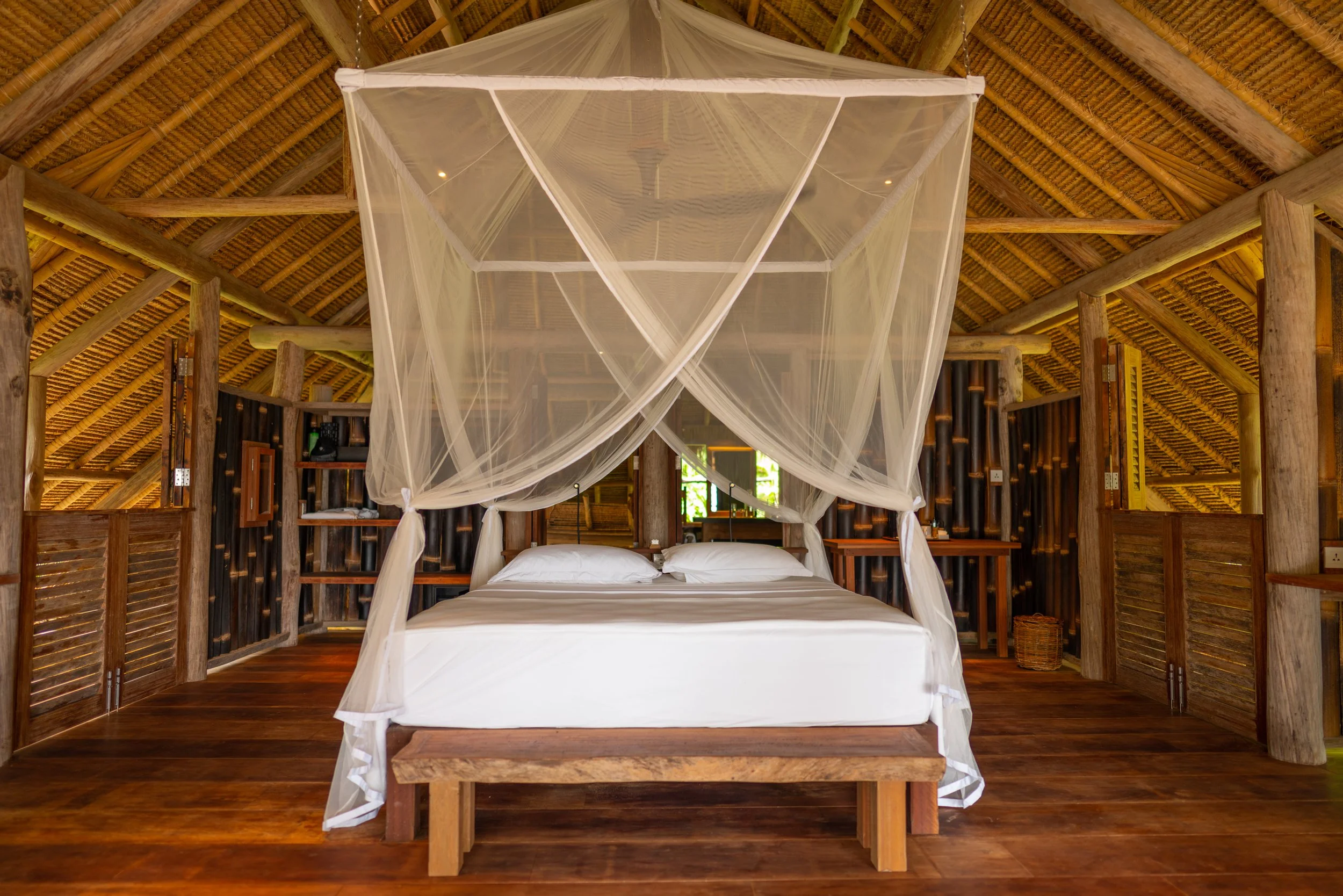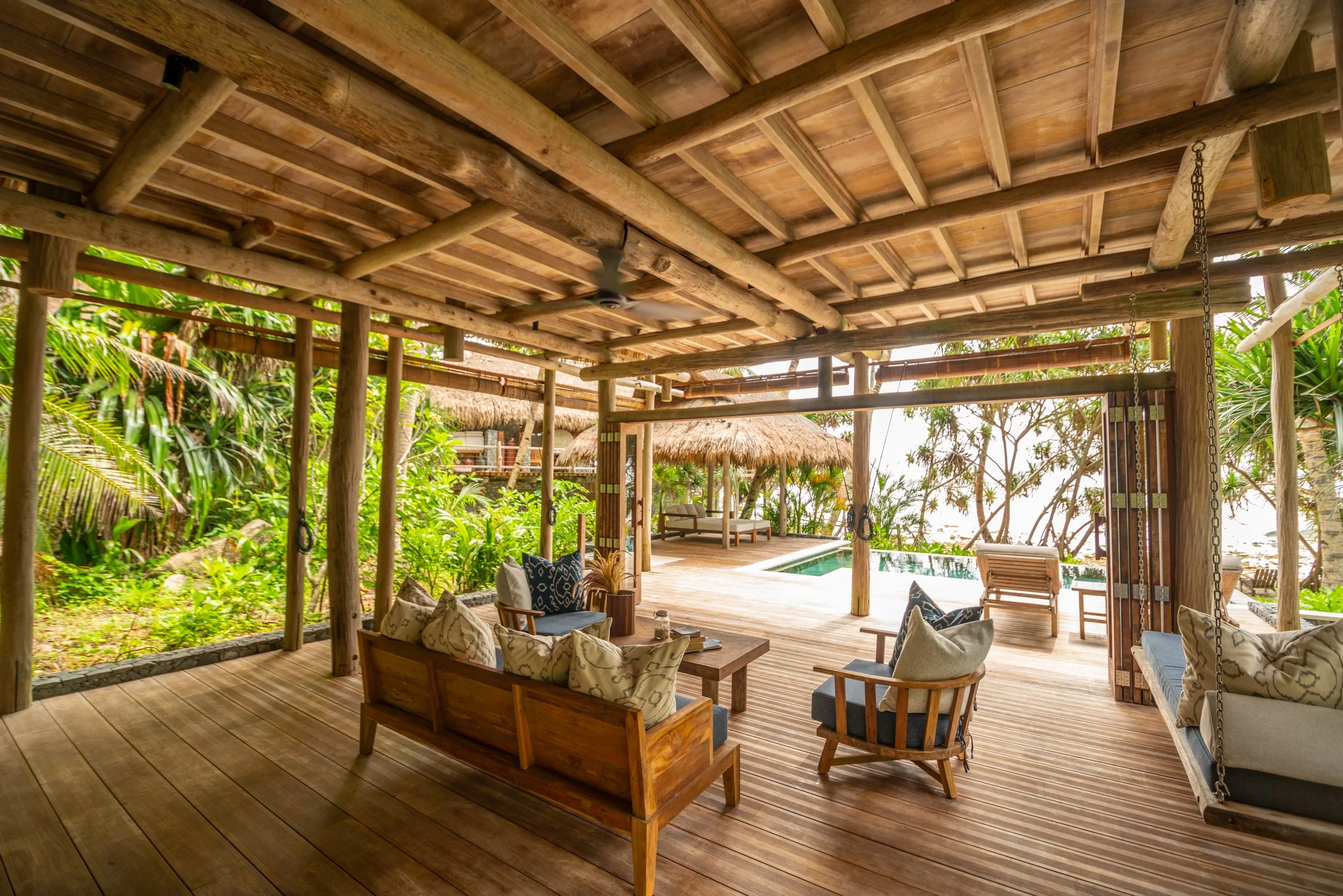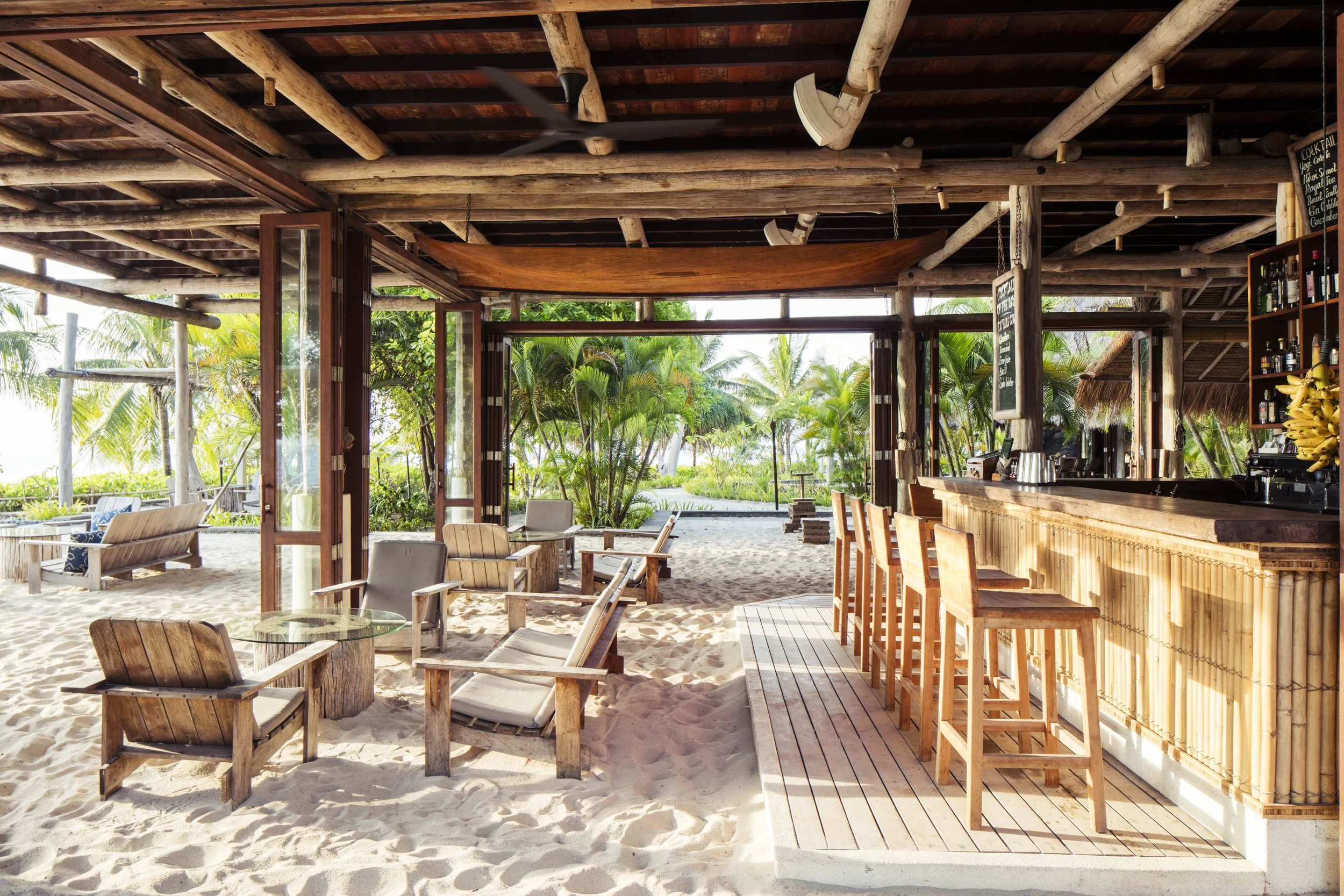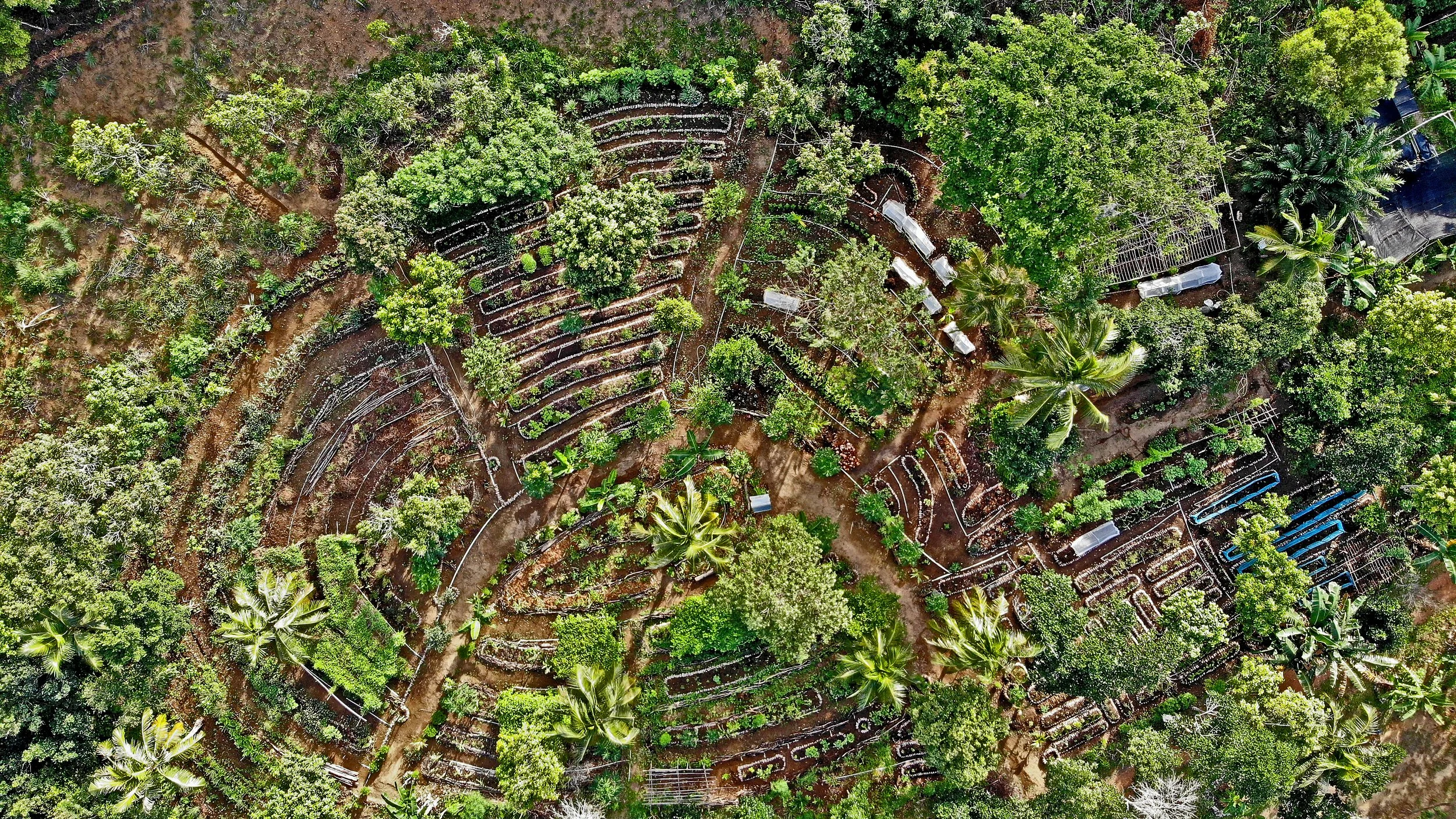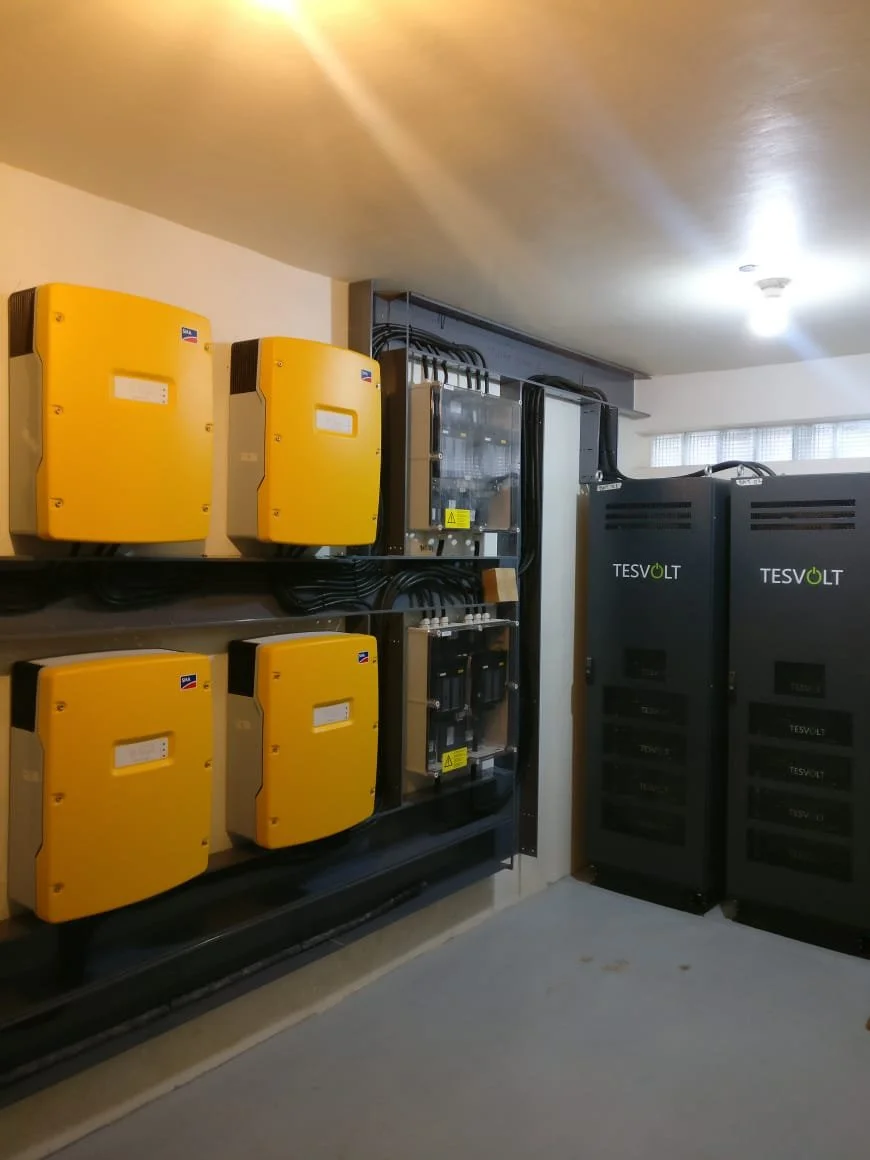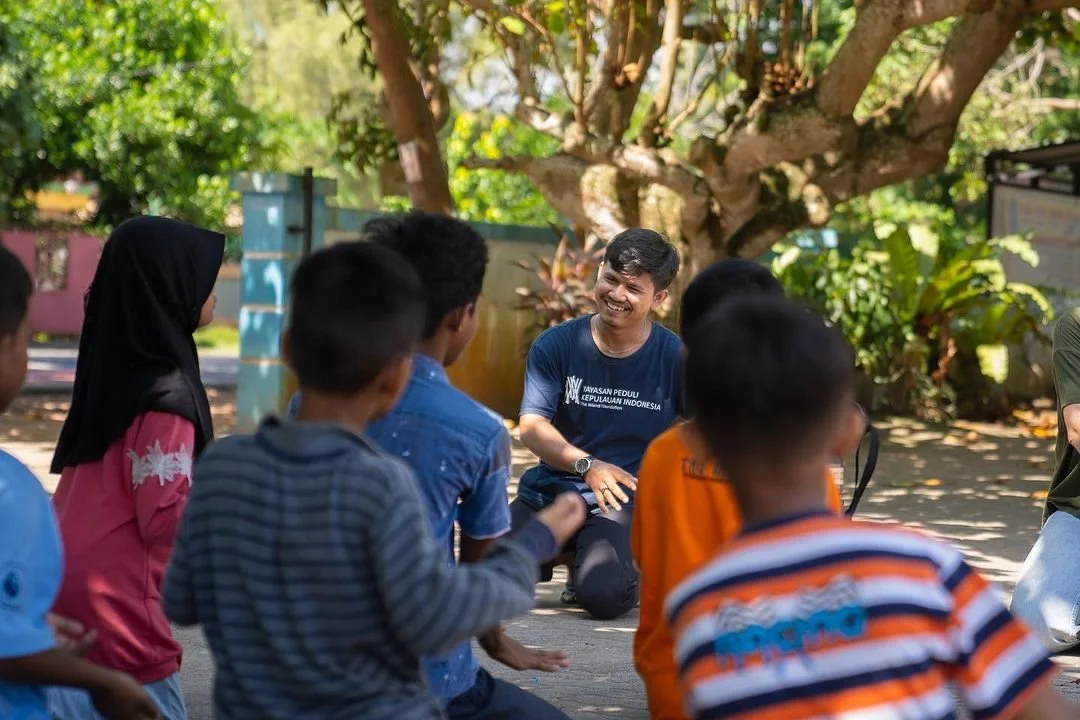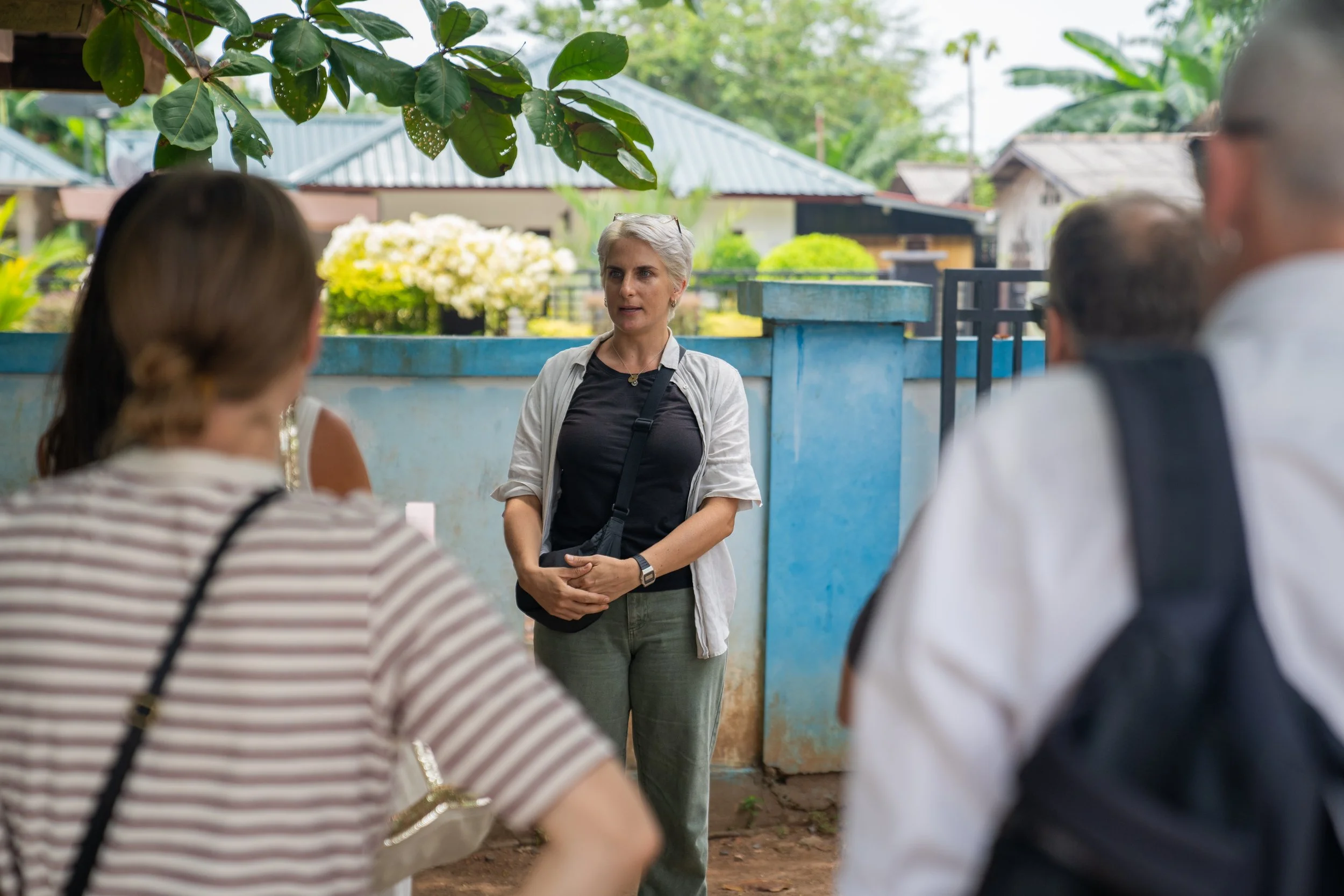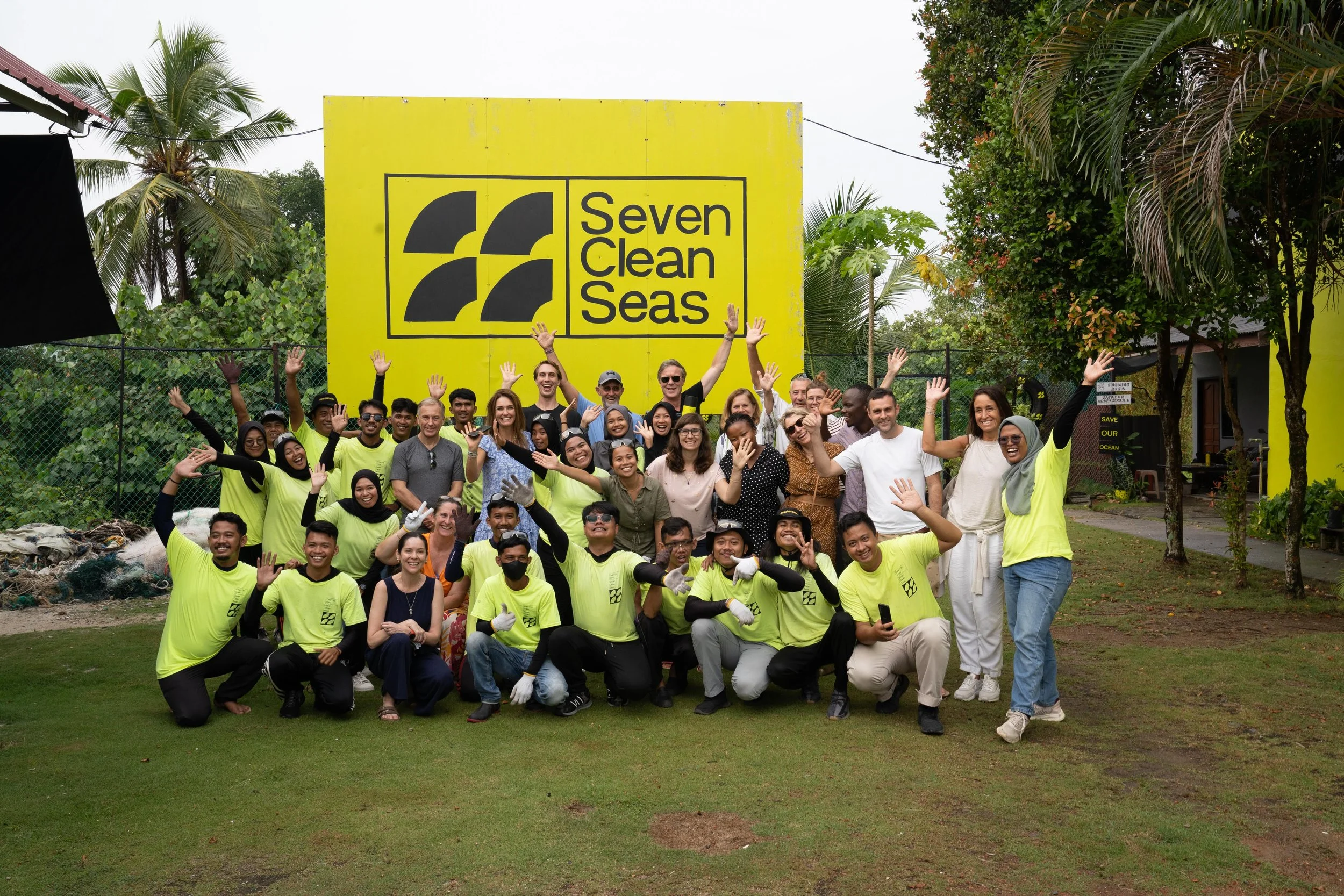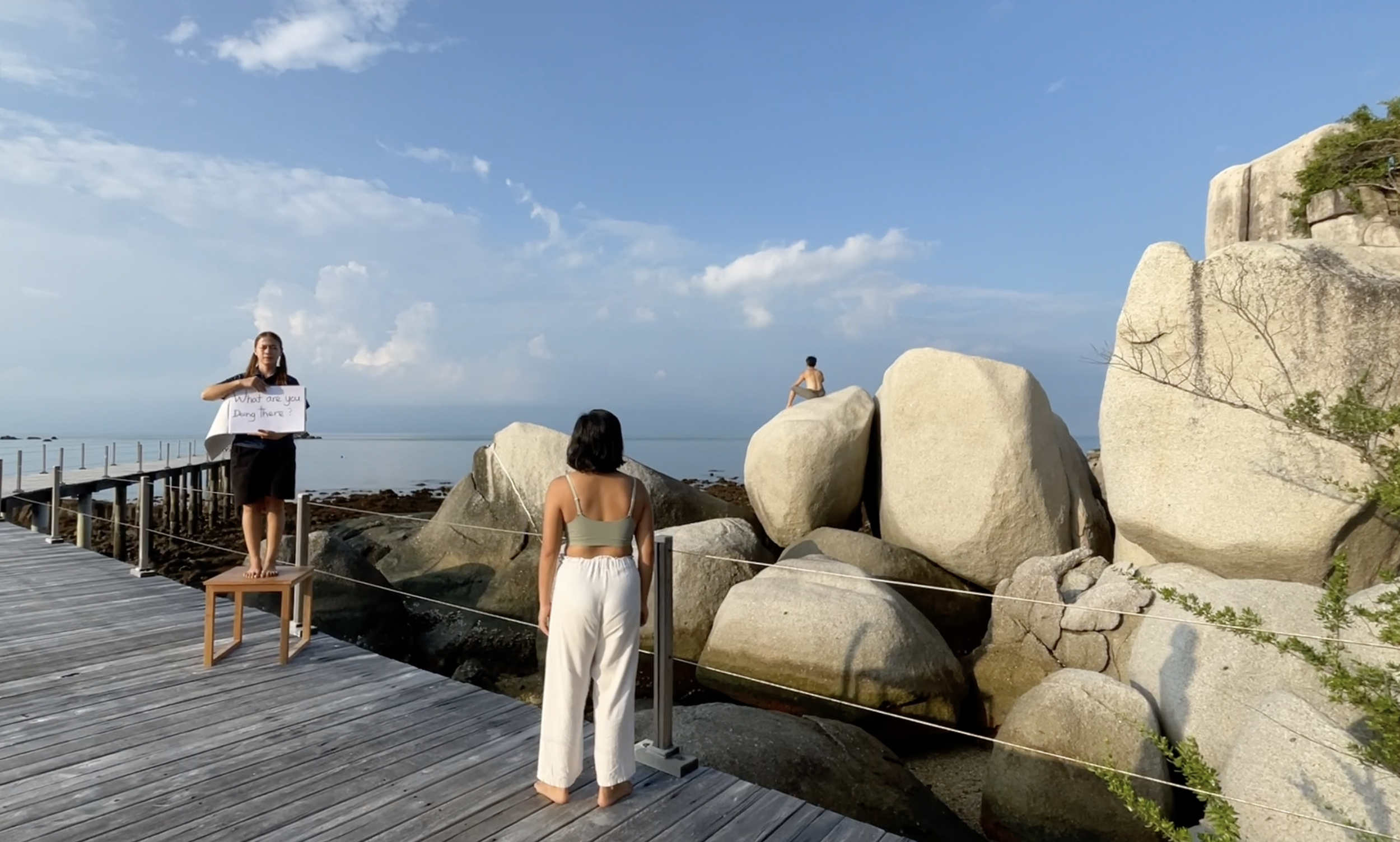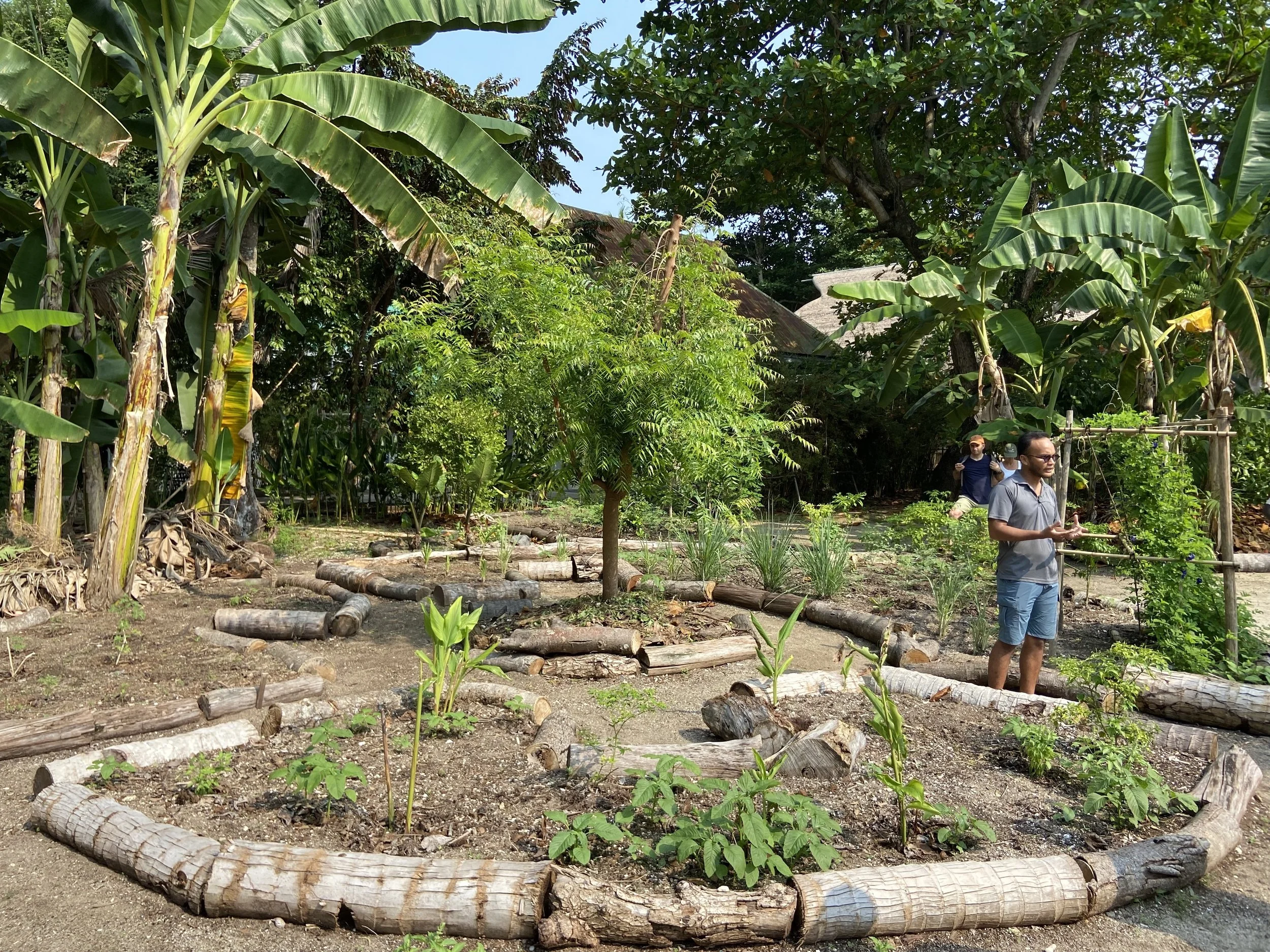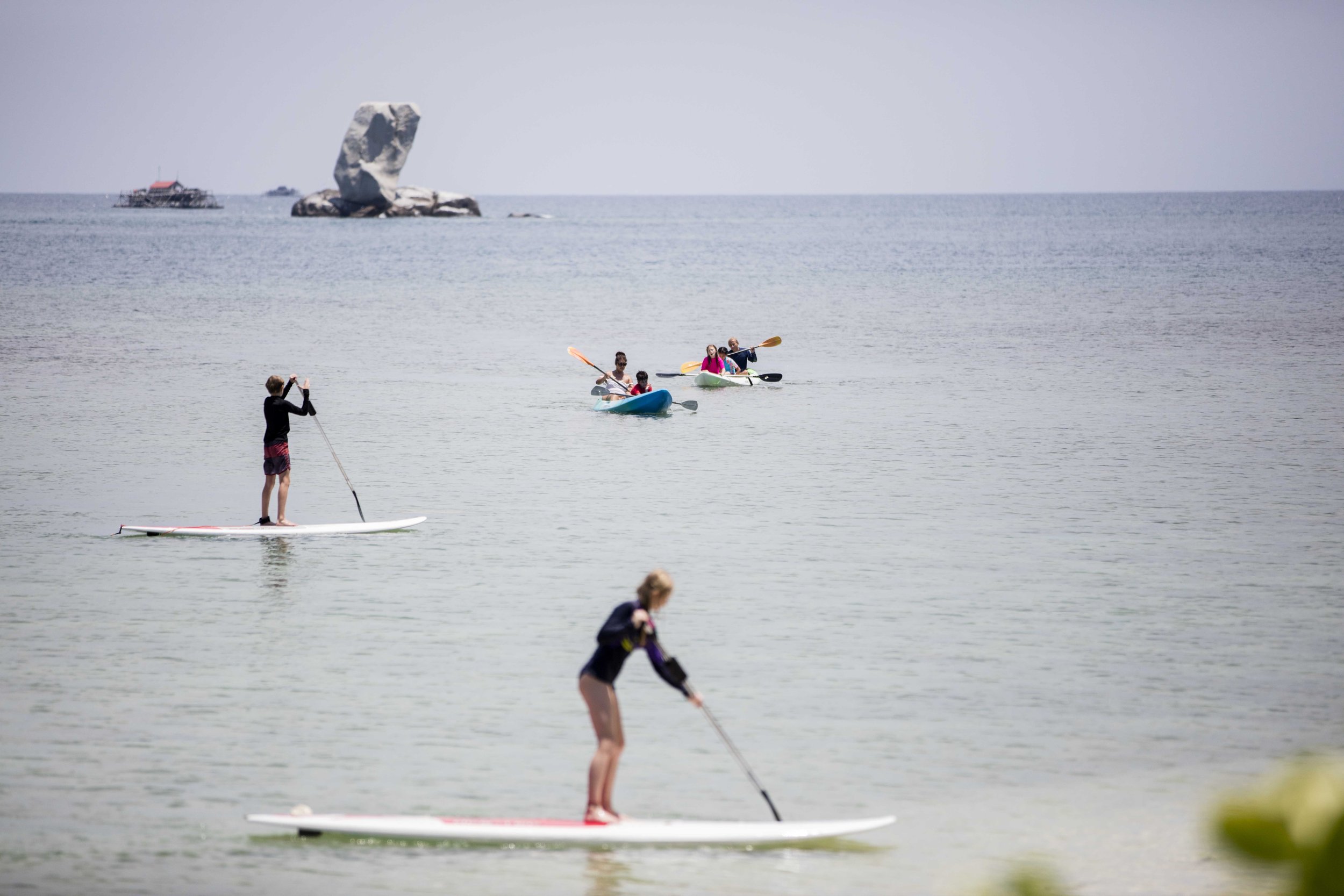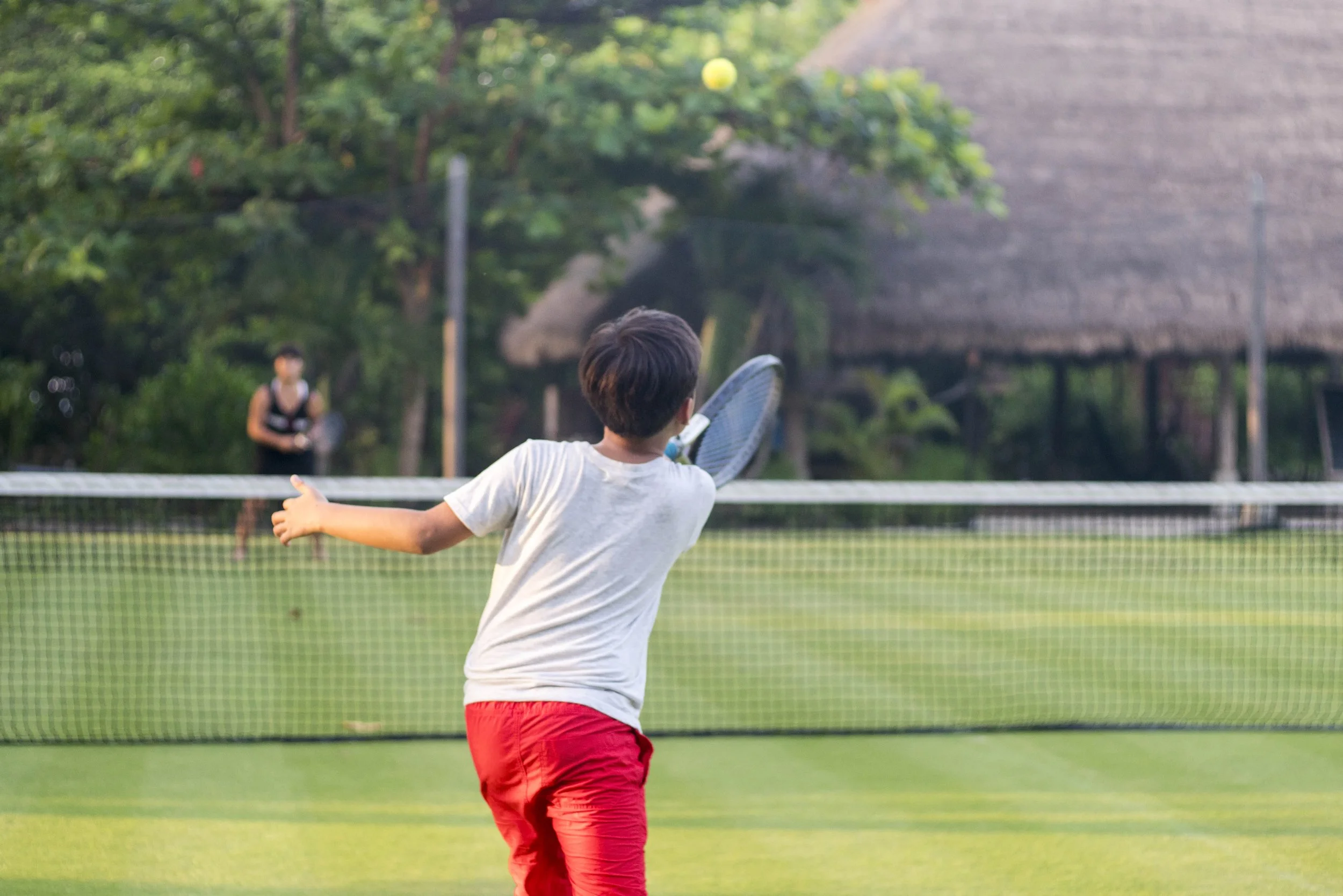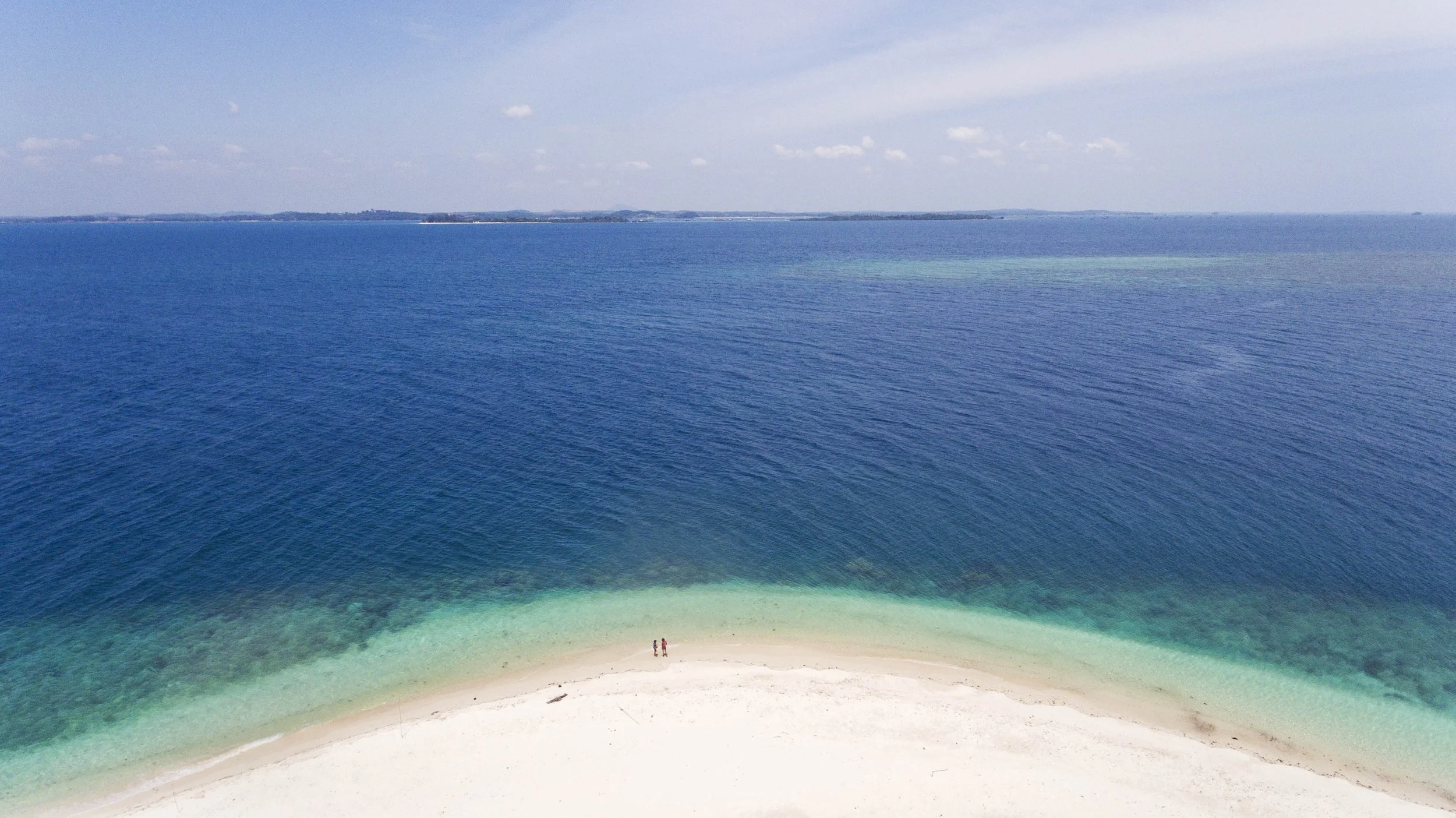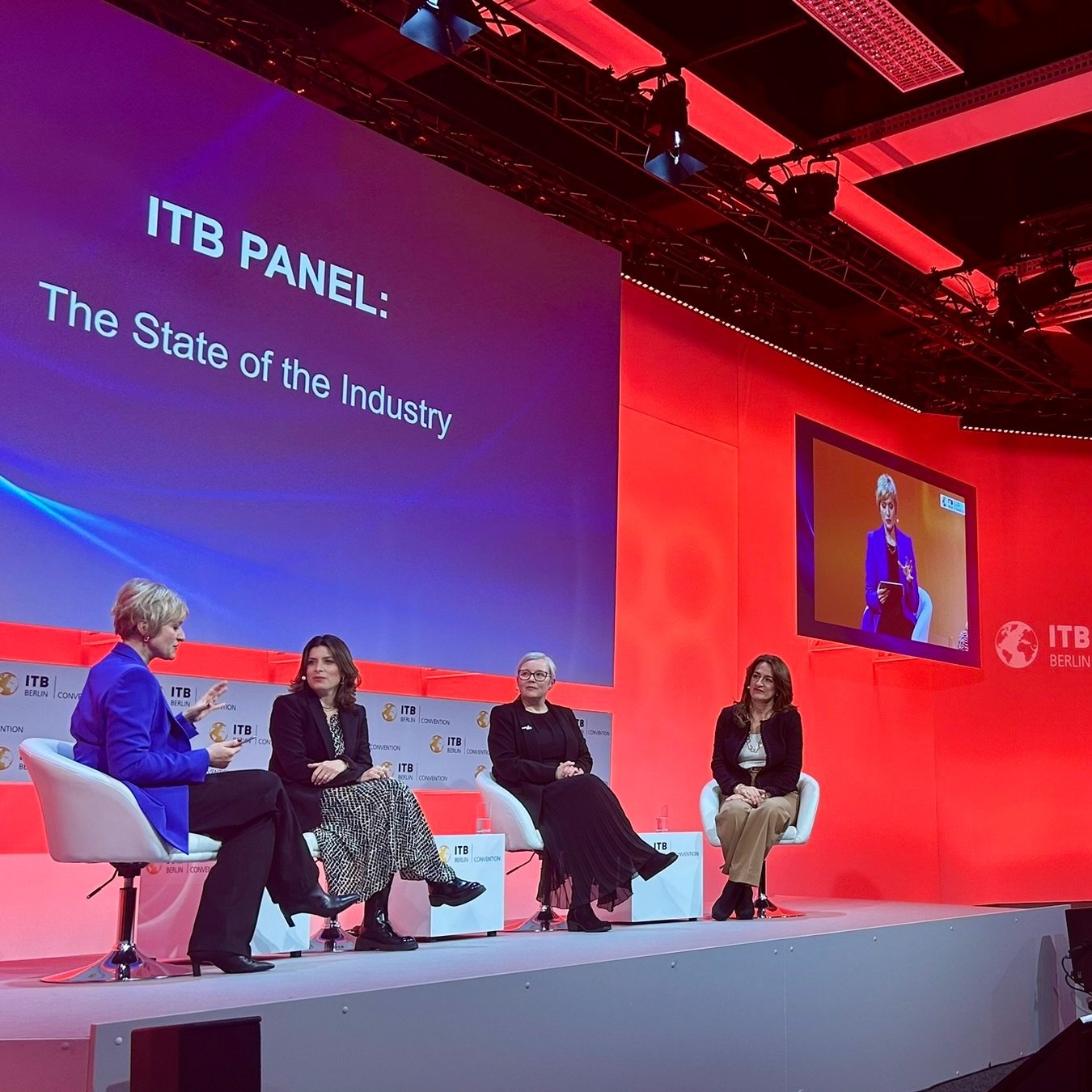A Former Banker Bought an Island in Indonesia to Build a Retreat. What Happened Next Had Ripples of Positive Impact.
Photo by: Nikoi Island
If you happen to meet Andrew Dixon, he will likely describe himself as an accidental hotelier. There is a very good reason why and a fascinating story behind it.
But for many in the world of travel and hospitality, he is widely recognized as the mastermind behind the stunning Nikoi and Cempedak islands just off the east coast of Bintan, Indonesia. Today, the islands are prime examples of responsible and sustainable hospitality, setting them apart in the crowded landscape of resorts in Asia.
Andrew Dixon, Founder of Nikoi Island and Cempedak Island
It Started as a Retreat for Family and Friends
Andrew Dixon's journey as a hotelier began unexpectedly. Initially seeking an island getaway from Singapore for his weekends, he fortuitously stumbled upon the serene east coast of Bintan. In a twist of fate, he found himself captivated by the allure of owning islands. In 2004, Andrew embarked on an audacious adventure, joined by a handful of daring friends, as they set their sights on acquiring Nikoi Island.
Their shared aspiration was to create an idyllic sanctuary, a respite from the frenetic pace of Singapore, where individuals could reconnect with nature and embrace simplicity. Although not formally trained in hospitality, Andrew possessed a deep understanding of what he desired as a discerning customer. Thus, he assumed the role of an empathetic guest, meticulously fashioning an experience that resonated with his own heart.
Today, Nikoi Island is a Global Ecosphere Retreats®, the highest level of membership in The Long Run community, and Cempedak Island is a Fellow Member. Andrew and his team continue using The 4C Framework, centered on Community, Culture, Conservation, and Commerce as their guiding sustainability approach.
Two Islands: Divergent Audiences, Yet Consistent Values
Even though Nikoi Island was built and designed for families, the resort initially attracted many couples for romantic getaways. However, the excitement of the daily treasure hunt and jetty jumping competitions tended to take away from the peaceful experience most childless travelers were seeking.
Andrew acknowledges the power of word of mouth, emphasizing the importance of guest experiences in fostering a positive reputation. So when Cempedak Island was added to the portfolio, it was a strategic decision to make it an adults-only property and thus complement Nikoi's family-friendly focus.
Nikoi Island and Cempedak Island, though designed for different audiences, remain faithful to the core values of personable guest service, sustainable gastronomy, and nature-led design. To keep things consistent, the same General Manager, Muhammad Marjan, oversees both properties.
Photos by: Cempedak Island
Photos by: Nikoi Island
Building Beyond Trends and Boundary
Bucking the conventional norm of luxury construction
Many island resorts in Asia are overbuilt with concrete and imported marble. Rejecting conventional luxury norms, Andrew embarked on building Nikoi Island with principles that aligned with his values and found a solution that appealed to him.
With a clear vision of building a pared-back escape away from the bells and whistles in major Asian cities such as Singapore, Andrew remained steadfast that the true value of Nikoi is its pristineness, and that it was important to protect and preserve the natural beauty of the island.
Two-bedroom Villa on Nikoi Island. Photos by: Nikoi Island
Pool villa downstairs lounge area. Photos by: Nikoi Island
Sunset Bar on Nikoi Island
The emphasis on sustainability is evident in locally-sourced construction materials, solar-powered energy, a permaculture farm, onsite water filtration, and waste management.
The two islands run on less than 400KW hours per day, which is equivalent to the power consumption of eight hairdryers. They’ve been able to not only recycle and repurpose their own waste but also support plastic collection on neighboring islands.
Nikoi's Permaculture Farm in Bintan (L); Solar PV Battery on Cempedak Island (R)
Amplifying impact through three foundations for youth empowerment and environmental protection
But their impact goes beyond just the boundaries of the two islands. Andrew and his team have helped establish three separate foundations.
First, the Island Foundation focuses on education, providing a bespoke curriculum outside of school hours for students and teachers. Though project-based and experiential learning, they help develop confidence, critical thinking, collaboration, and creativity skills. During the pandemic when public schools were closed, it was the only form of education available, resulting in a 50% increase in enrollment.
“Since The Island Foundation was founded in 2010, we have impacted over 3,200 children and trained over 1,500 teachers. Now, we are operating across 12 learning centers in the Bintan regency, and we have just received a grant to expand into Lingga, an island community south of here,” says Andrew.
Wahyu Rangga Auli, Program Coordinator (L), and Courtney Saville, Executive Director (R) at The Island Foundation. Photos by: Nikoi Island
Nikoi and Cempedak have also partnered with Seven Clean Seas (SCS), a social enterprise committed to removing plastics from the seas. During the pandemic, the Nikoi and Cempedak teams helped set up the SCS Bintan operation by providing the initial manpower in return for subsidized incomes. “Our staff collected over 300 tonnes of plastic during that period,” Andrew proudly adds.
The Long Run members and friends visiting Seven Clean Seas in Bintan, Indonesia. Photo by: Nikoi Island
The third foundation that they helped to establish works on marine conservation along the east coast of Bintan where an area of 1,380 km² (twice the size of Singapore) was recently declared a Marine Protected Area. Thanks to research that was supported by Nikoi and Cempedak Islands, the management plan for this conservation area is currently being finalized and rolled out.
Harnessing the power of creative storytelling with Ubah Rumah Residency
Recognizing the profound impact of storytelling in cultivating emotional connections and instigating meaningful behavioral change, Andrew took a decisive step in November 2023 to found Ubah Rumah Residency on Nikoi.
This initiative goes beyond just offering resident artists a creative home; it serves as a platform for them to immerse themselves in projects that ignite their passions. Importantly, Ubah Rumah Residency is a catalyst for raising awareness, both on a local and international scale, about the narratives unfolding within threatened communities and ecosystems.
Lyle Yeo, the first artist in residence at Ubah Rumah, during his final performance in which he utilized the whole island as his stage and Nikoi’s staff as co-performers. Photo by: Ubah Rumah
Staff is the Most Important Asset
Andrew Dixon has fostered a culture of innovation and empowerment within his staff. The embodiment of this commitment is the Green Leaders program, an initiative designed to tap into the sustainable ideas from every department.
The impact of this initiative is profound. Staff members have sparked a sustainability revolution within the organization. Many of them bring the concepts of waste management and food composting back to their families, creating a ripple effect of positive change.
To further enhance the skills and knowledge of his staff, Andrew invests in training programs, sending them to Singapore and other properties affiliated with The Long Run. This commitment to ongoing education ensures that the team remains at the forefront of sustainable practices.
One notable success story is Hendry Sianipar, the Farm Manager for the properties. Having been sent on cross-exposure trips to properties in Kenya and other parts of Indonesia, Hendry returned to Bintan with a deeper understanding of how best to employ permaculture techniques on the harsh soil conditions that their farm presents.
Hendry Sianipar leading a garden tour for The Long Run members and guests. Photo by: ASTB
In addition to fostering innovation and skill development, Andrew established a Staff Fund years ago as a savings and loan scheme. This Fund allows staff members to contribute a set amount, facilitating both savings and borrowing within the scheme. Importantly, the fund is audited and managed by the staff themselves, a practice that has proven successful in serving up to 200 team members.
The Staff Fund has not only provided financial stability but has also curtailed the informal lending practices among staff, mitigating potential conflicts and maintaining an almost zero default rate.
Immersive Guest Experience Dispels Perceived Notions of Sustainability and Luxury
In Singapore and Southeast Asia, the term "sustainability" can easily be misconstrued, with many perceiving it as a trade-off between comfort and convenience. At the same time, there's a prevalent confusion, and potential guests may hesitate to pay a nightly rate equivalent to a five-star hotel in Singapore for accommodation with no air conditioning on Nikoi or Cempedak islands.
Andrew refrains from selling the concept of sustainability and luxury; instead, he invites individuals to immerse themselves in the experience.
Luxury, for many, is often associated with opulence and extravagance. However, the discerning guests of Nikoi Island and Cempedak Island seek more than just glam and glitz. They are looking for an authentic and genuine experience that is rooted in personalized service, unique nature-based experiences, and exquisite food and drink.
Nikoi and Cempedak operate on the overarching principle that a profitable business is the most sustainable one. A significant portion of profits are reinvested each year to continue to grow the business and develop further opportunities. This enables the businesses to further build on their efforts with respect to Conservation, Culture, and Community.
Photos by: Nikoi Island


